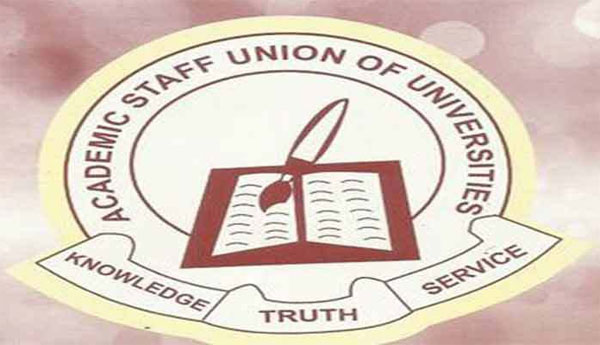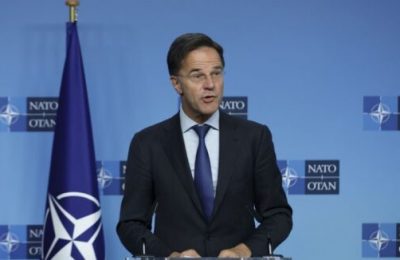The Yola Zone of the Academic Staff Union of Universities (ASUU) has accused the Federal Government of suffocating public universities in Nigeria.
The zone, which comprises Adamawa State University (ADSU), Mubi, Federal University Gashua (FUGA), Modibbo Adama University (MAU), Yola, Taraba State University (TSU), Jalingo, University of Maiduguri (UNIMAID), and Yobe State University (YSU), Damaturu, condemns in strong terms the unprecedented creeping fascism that has infiltrated public universities in Nigeria.
It also addresses fundamental issues that pose a serious threat to the foundation of academic freedom, the rule of law, and democratic principles in Nigerian public universities.

The union states that the main driver for the eight-month strike action in 2022 was to compel the Federal Government of Nigeria (FGN) to implement the Memorandum of Action (MoA) of 7th February 2019 for the government to implement the Agreement.
ALSO READ: Japa: Proprietor collects WAEC, NECO fees, sells school, flies abroad
At a press briefing at Modibbo Adam University (MAU) today in Yola, the spokesperson of the group, Professor Dani Mammam, who is the Zonal Coordinator of the Yola Zone, said that the 2009 agreement between the FGN and ASUU aimed at addressing various issues in Nigerian universities was never followed.
“You will recall that after two years of negotiations, the FGN and ASUU reached an agreement in 2009. This agreement covers: a) Conditions of service for university lecturers (salaries, allowances like EAA.) b) Funding for universities c) University autonomy and academic freedom d) Other matters

The single Term of Reference of the Committee was to renegotiate the 2001 FGN/ASUU Agreement and enter into a workable Agreement. In the course of discussion, the Committee agreed that the essence of the Re-negotiation was to:
i. reverse the decay in the University System, in order to reposition it for greater responsibilities in national development;
ii. reverse the brain drain, not only by enhancing the remuneration of academic staff but also by disengaging them from the encumbrances of a unified civil service wage structure;
iii. restore Nigerian Universities, through immediate, massive, and sustained financial intervention; and, iv. ensure genuine university autonomy and academic freedom.
All efforts by the Union and the promise made by the FGN to address contending issues on the renegotiation have not yielded any result.
For the avoidance of doubt, in the years 2017, 2018, 2020, and 2022, the 2009 agreement was renegotiated with the government’s representatives, Dr. Wale Babalakin, Prof. Munzali Jubril, and the late Nimi Briggs, heading the government’s teams, respectively.
ALSO READ: Japa: Proprietor collects WAEC, NECO fees, sells school, flies abroad
The Nimi Briggs Committee concluded the renegotiation with the Union, awaiting the government’s approbation. Obviously, the refusal of the government to sign the renegotiated agreement has suffocated the Nigerian public Universities.
The recent wage award by the FGN was never a component of our renegotiated agreement; the union demands full implementation of the Nimi Briggs Committee report.
“You may recall that the FGN in 2023 budgeted N50 billion for the payment of the backlog of our members’ EAA and promised to mainstream the EAA into our salaries, but that has not seen the light of day”.
The failure of the federal and state governments to mainstream EAA into the salaries as of 2022, as contained in the 2020 MoA between ASUU and FGN, is a clear manifestation of the government’s bad intentions towards our members.
Adamawa State University (ADSU), for instance, has not been paid EAA from 2016-2023, Taraba state University EAA has not been paid from 2015 to 2024. Likewise, Yobe State government has not paid Yobe State University academic staff their EAA for the 2020/2021 and 2022/2023 sessions, the zonal coordinator added.
“FGN is still withholding the three-and-a-half-month salaries of our members, even though we have covered the work for the period during which our union was on strike.
Most of the public universities in Nigeria today are either in the first or second semester of the 2023/2024 academic session. Impliedly, no skipped or canceled session was recorded, and by September/October 2024, universities will be in the 2024/2025 academic year.”
“Therefore, it is illogical, unfair, and illegal not to pay ASUU members their rightfully earned withheld salaries.”
On University autonomy, the union believes and emphasizes that it will amount to deception taken too far if the government fails to revert to quarterly releases of varsity funds to enable the Universities to design and implement their payment plans.
“The use of CCMAS is a usurpation of the powers of the university Senate, which, by law and practice, should superintend curriculum review, examinations, and the award of degrees and certificates in each university. Unifying academic curricula across Nigerian universities is counterproductive.”
According to the union, “it erodes competition, innovation, and creativity. University Senates, who are statutorily responsible for academic program development, are left to work on only 30% of the CCMAS.”
Stressing that the imposition of CCMAS has eroded university autonomy and academic freedom.
Members of ASUU call for a renegotiation as the members have been on the same salary for more than 15 years.
“The last time our salaries were reviewed was in 2009. Lecturers in Nigeria are the least paid in Africa because our impoverished pay package is far below Africa’s average, not to mention the global average. Nigerian academics are the worst paid in the world, as a professor at a bar earns less than $300 per month at the current rate of N1,450 per dollar.”
“We are optimistic that the Nigerian government has ample resources to fund education better. It is a matter of priority.”
Similarly, the union reiterates in unequivocal terms our rejection of the students’ loan scheme, which to the union is an IMF/World Bank ideology intended to bastardize our educational system and cripple the future of the Nigerian youth.
“Instead of a loan, the government should give students study grants, just as our union gives scholarships to students across the nation.”
The union is in a patriotic struggle to reposition the Nigerian university system. The coordinator said.







